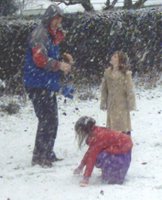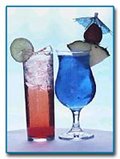 Last week Charles Kennedy resigned as leader of the Liberal Democrats. His party had lost confidence in his ability to lead them because of his poorly controlled alcohol problem. This inspired The New York Times to publish an article (11 Jan '06) about alcohol consumption in the UK.
Last week Charles Kennedy resigned as leader of the Liberal Democrats. His party had lost confidence in his ability to lead them because of his poorly controlled alcohol problem. This inspired The New York Times to publish an article (11 Jan '06) about alcohol consumption in the UK.
If you're a British binge drinker who's thinking of moving to the US, you may want to bear this in mind:
- Although supermarkets here sell wine and beer, you can't get spirits or liqueurs unless you go to a liquor store. These are few and far between. One has to really, really want one's G&T, vodka or after-dinner brandy to be able to get it. In England, we always had a fairly healthy looking drinks cabinet. Here, we haven't yet got around to visiting the ABC liquor store that is about 3-4 miles from our house. It's the only place in our immediate vicinity that sells anything stronger than sherry or port.
- It is illegal to have an open container of alcohol in the car, whether it is being consumed or not. I think that in some areas alcohol can only be transported in the boot (trunk) of the car and isn't allowed in the carriage at all, but I'm not 100% sure about this.
 In some areas, it is illegal to have alcohol in one's possession in a public place at all. In such areas, when alcohol is purchased, the shopkeeper places it in a brown paper bag, so that it cannot be publicly seen that one is carrying alcohol. This shed some light, for me, on something one often sees in US films and TV programmes -- the drunk character on the side of the road drinking booze from a bottle that is in a brown paper bag (when something strange happens, they look at what has happened, look at the bottle, then either shrug and take another swig or throw the bottle away).
In some areas, it is illegal to have alcohol in one's possession in a public place at all. In such areas, when alcohol is purchased, the shopkeeper places it in a brown paper bag, so that it cannot be publicly seen that one is carrying alcohol. This shed some light, for me, on something one often sees in US films and TV programmes -- the drunk character on the side of the road drinking booze from a bottle that is in a brown paper bag (when something strange happens, they look at what has happened, look at the bottle, then either shrug and take another swig or throw the bottle away).
- If one serves alcohol at a party, then allows a guest to drive home while under the influence (here it's known as Driving While Impaired(DWI)), one can be sued or can face criminal charges if that guest causes any damage after they have left the party.
The strange thing is that, despite these laws, individual attitudes to drinking and driving (according to what I've encountered thus far) seem to be lax. I don't drink alcohol at all if I'm intending to drive. If I have to, I may drive if I've had less than a glass of wine. This is because, regardless of legal limits, I have a strong moral objection to drinking and driving.
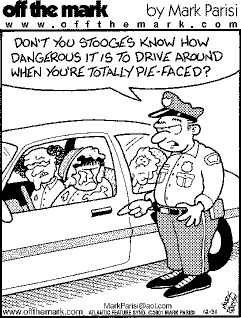
In the UK, there are clearly defined drink-drive limits for blood alcohol level. Three units of alcohol will tend to put most people over the limit, so most people who are intending to drive will have one or two glasses of wine, then move on to non-alcoholic drinks. Other alternatives to having a designated driver include using a taxi, or (if you're in a big city like London) get a scooter-chauffeur. These are people who have small, fold away scooters. They can pick you up from an establishment of your choice. They fold their scooter into the boot of your car, then drive you home. This means that you don't have to go back for your car the next day.

Although recommendations are given, the limits here are not set in stone. The courts can choose to lower the acceptable limit for an individual if they have been convicted of previous DWI offences. The flip side of this that an individual at a party may think that they can set their own limit. They can drive home, thinking that they can handle their drink perfectly well, not thinking that one doesn't necessarily need to
feel intoxicated to
be intoxicated.
As far as binge drinking is concerned -- well, obviously it's a very unhealthy lifestyle and I wouldn't recommend it.
January 28, 2006
Today I managed to visit the ABC Package Store (Package?). It's the only place that one can buy good, hard booze and it has restricted opening hours. I bought four bottles -- one whisky, one brandy, one vodka and one gin; and guess what they put it all in? I was more than a little pleased to see them put the bottles into four
brown paper bags, so that I could carry them out of the shop and put them into the boot of my car.
The other thing, is that I went to see the film Fun with Dick and Jane today. (Not as good as the original, but has a lot of good laughs if you can get past it being Jim Carrey and Tea Leoni instead of George Segal and Jane Fonda.) The film has in it a character whose feelings of guilt and remorse turn him to drink. I was pleased to see that he drank his booze from within a brown paper bag!
March 29, 2009
Just when I thought that I knew it all, I recently had a new experience at the ABC store. Because having to go all the way to the ABC store to get our booze is such a polava, we have developed the habit of going only once every couple of months and stocking up. This time, the Elijah Craig whiskey was on special offer, as was the Cointreau and the Drambuie, so we decided to buy a bit more than usual. When we got to the till, the man asked us if we were having a party (hmmm... a funny sort of party where the only drinks on offer are whiskey, sambuca, Cointreau and Drambuie), but we explained that we find having to make time to go to the ABC store so cumbersome that we tend to try and stock up. It transpired that there is a limit to the amount of alcohol that one can buy at one time without a special permit (
4.5 US gallons; 3.75 Imperial gallons) and we had exceeded that. We had to fill in and sign a
Special Occasion Storage and Transportation Permit for them to be able to sell us the booze. With this permit, one can buy up to about 10.5 US gallons.
It may well be that the UK has some sort of laws limiting sale of alcohol, but it's not something that I have ever discovered or tested. Perhaps this is because in the UK one doesn't have to go to a specialist store to buy alcohol, so one doesn't need to stock up.
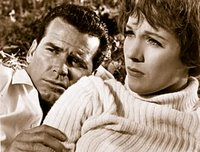
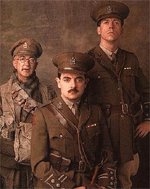
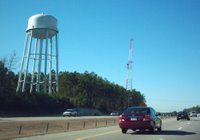
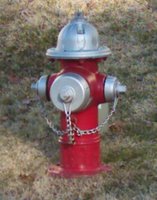
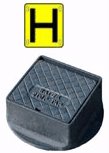
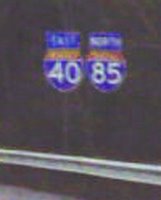
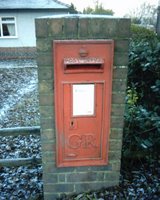

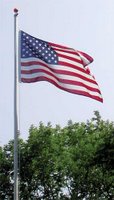


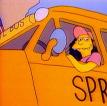
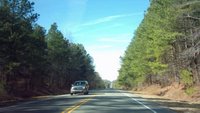






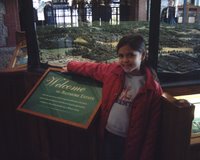


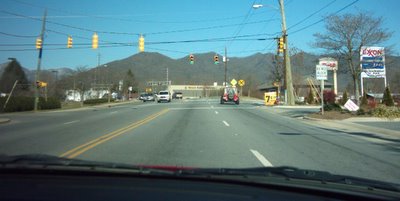
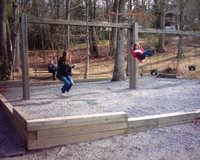


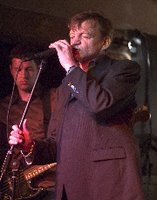



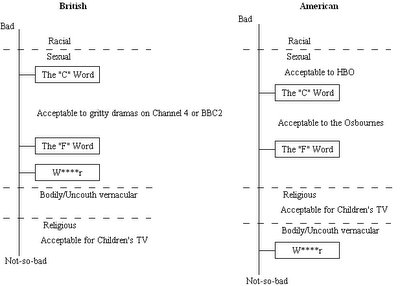



 Is it just me, or does everyone have the experience of time slowing down as it approaches midnight on New Year's Eve? Every New Year, before midnight the time seems to go really slowly. I keep looking at my watch and wondering why midnight can't hurry up so that I can go to bed. But then midnight arrives and instead of going to bed, I get a second wind and the party really begins.
Is it just me, or does everyone have the experience of time slowing down as it approaches midnight on New Year's Eve? Every New Year, before midnight the time seems to go really slowly. I keep looking at my watch and wondering why midnight can't hurry up so that I can go to bed. But then midnight arrives and instead of going to bed, I get a second wind and the party really begins.  The great thing about putting the telly on just before midnight is not just the accuracy of the countdown, but the solidarity that is experienced with the rest of the country and Europe. One gets a glimpse of other concurrent celebrations which makes one feel a part of something bigger.
The great thing about putting the telly on just before midnight is not just the accuracy of the countdown, but the solidarity that is experienced with the rest of the country and Europe. One gets a glimpse of other concurrent celebrations which makes one feel a part of something bigger. 

